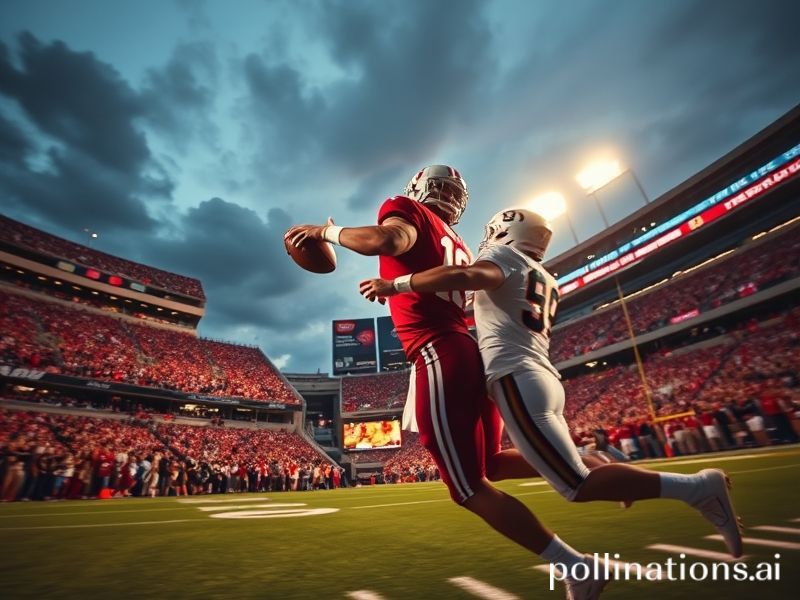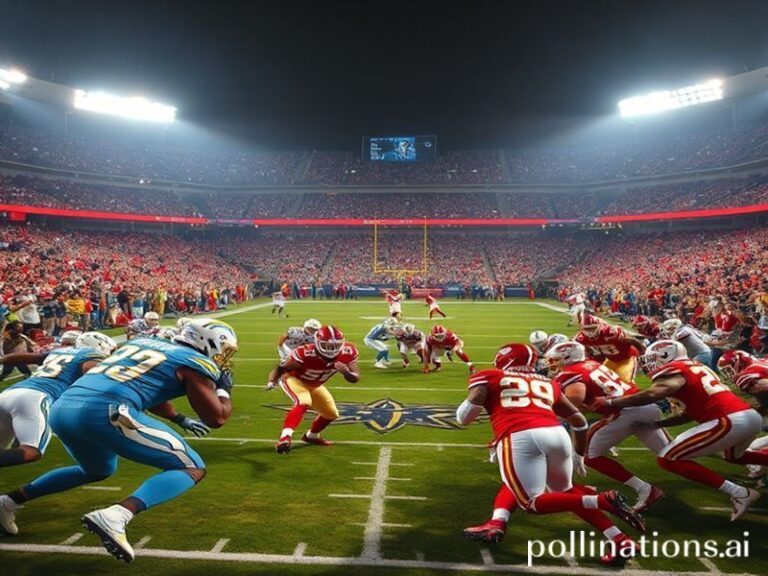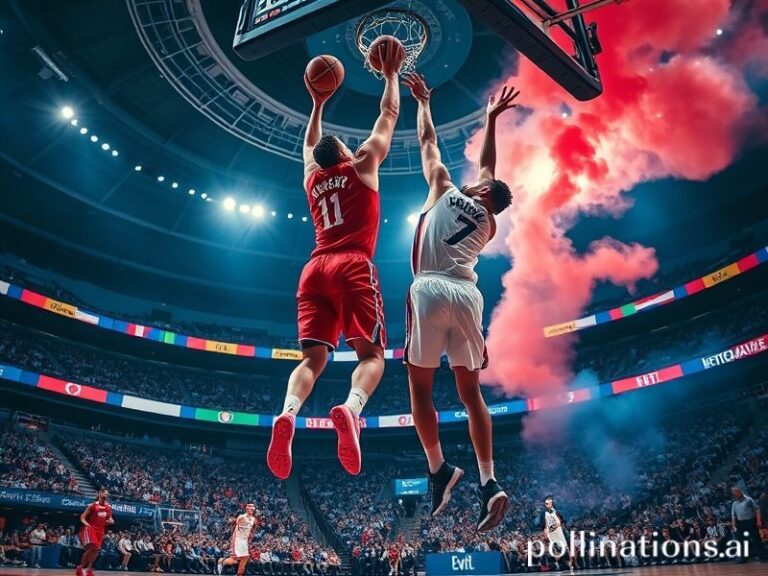Global Fallout: How Alabama vs Georgia Turned a College Game into a Worldwide Existential Barometer
Alabama vs Georgia: When a College Football Grudge Becomes a Proxy War for the Planet’s Nervous Breakdown
Dave’s Locker | International Desk
ATLANTA—While the rest of the world spent New Year’s Eve stockpiling rapid tests, fireworks, or sheer existential dread, the American Deep South was busy rehearsing its own ritualized apocalypse: Alabama versus Georgia, college football edition. If you missed it, congratulations—you were probably busy watching your own hemisphere burn, freeze, or quietly devalue its currency. But make no mistake, this was not merely two student bodies in matching pajamas chasing an oblong ball. This was geopolitics wrapped in a marching-band medley, sponsored by a fried-chicken chain and broadcast to 172 countries that still think “SEC” stands for Securities and Exchange Commission. (Spoiler: it doesn’t.)
First, the numbers, because nothing screams planetary significance like Nielsen ratings. ESPN International piped the game into hotel lobbies from Lagos to Laos, allowing jet-lagged businessmen to discover that American football stops every twelve seconds for committee meetings. The global audience peaked at 22.6 million, roughly the population of Sri Lanka watching grown men in tights argue about inches. Viewers in London pubs, Dubai airport lounges, and Seoul PC bangs were treated to the spectacle of 100,000 unmasked humans screaming in a state whose vaccination rate trails Moldova’s. Somewhere, an epidemiologist wept into his lager; somewhere else, a cryptocurrency whale bet fifty Ethereum on the over and called it portfolio diversification.
What did the world glean from this collision of crimson and red? First, that American tribalism scales beautifully. Alabama’s “Roll Tide” and Georgia’s “Go Dawgs” chants translate into any language as “We require an out-group to feel alive.” Swap the jerseys for flags and you’ve got Brexit, Kashmir, or the perpetual debate over whether pineapple belongs on pizza. Second, that U.S. college sports are the last socialist utopia Americans will admit to: revenue-sharing, salary caps (currently zero), and collective bargaining by 19-year-olds who still have to buy their own textbooks. When the European Union inevitably collapses, expect Brussels to adopt the Southeastern Conference bylaws verbatim.
Economically, the game was a masterclass in soft power via soft drink. Coca-Cola—headquartered a Hail Mary pass from the stadium—sponsored the halftime show, reminding viewers that diabetes is a small price to pay for liquid Americana. Meanwhile, Chinese manufacturers shipped in 300,000 LED foam fingers at $0.47 a pop, proving once again that global supply chains are undefeated. The winning coach’s bonus ($1.25 million) exceeds the GDP of several Pacific micro-nations, which is either inspirational or grounds for sanctions, depending on your choice of NGO.
Of course, no international dispatch is complete without the obligatory climate angle. The game kicked off under 68°F skies—unseasonably cool, unless you live in Vancouver, currently on fire. Still, ESPN commentators hailed the “perfect football weather,” blissfully unaware that the same jet stream flooded Jakarta last week. Climate refugees worldwide watched million-dollar RVs idle in parking lots for six hours and wondered if the American dream runs on premium unleaded or pure denial.
And then there is the matter of the losing team, who must now return to campus and pretend microeconomics matters. Georgia’s defeat will ripple through the global meme economy for at least 72 hours, sustaining content farms from Lagos to Manila. Meanwhile, Alabama fans will spend the offseason buying national championship merchandise printed on three continents, ensuring that sweatshops in Bangladesh get their own version of overtime.
In the end, Alabama versus Georgia was not about football; it was a Rorschach test for a planet addicted to spectacle. The rest of us can cluck our tongues, but we tuned in, didn’t we? Somewhere a Mongolian herder streamed the fourth quarter via satellite and thought, “At least our goats have playoffs that make sense.” He’s not wrong. The final whistle blew, fireworks lit up the Atlanta sky, and somewhere in the distance a Russian oligarch updated his spreadsheet: American chaos, still outperforming expectations. Roll Tide, Go Dawgs, and God help us all.







